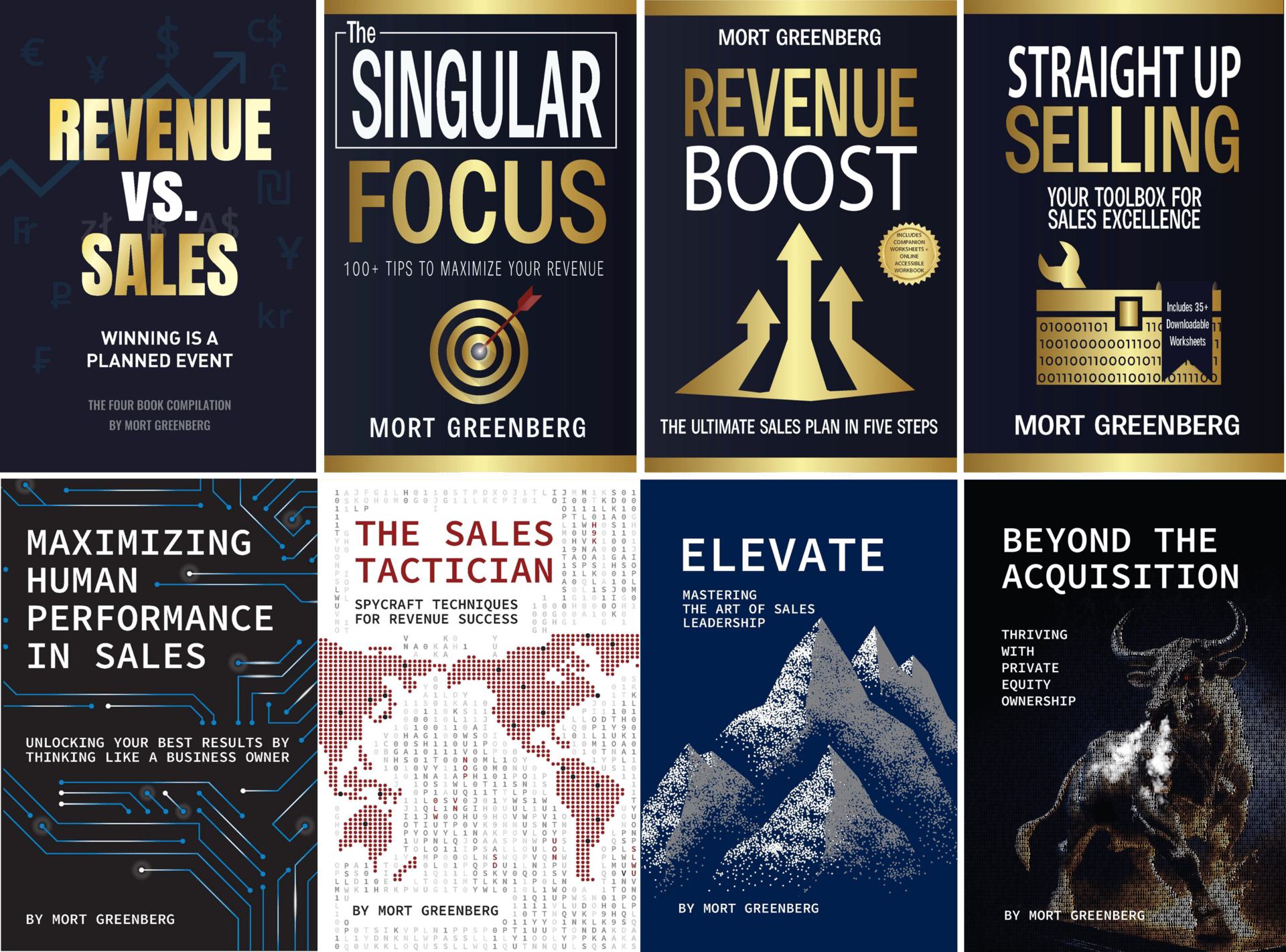

Hi,
In the world of high-stakes selling and business leadership, earning money is only half the game; protecting and growing it is where long-term success is built. Wealth is not what you earn. It’s what you invest, force to compound, and protect with discipline.
Whether you're a seller closing six-figure deals, a manager driving team bonuses, or an owner with equity on the line, wealth management isn't a luxury; it's a skill set. And yet, most sales-driven professionals wait too long to put serious structure around their earnings. This workshop is about fixing that.
You'll learn how to separate income from lifestyle, create systems that minimize risk, and build a personal financial flywheel that supports your freedom, not your stress.
Because when your money has a job, your mind can stay focused on the mission. From cash flow structuring to basic asset allocation, this session gives you a foundation that can scale with your career. BUT, talk with an actual financial pro, don't just listen to me :-)

Turn to Best View Tables Below
DO’S & DON’TS
WHAT TO DO | WHAT NOT TO DO |
Set aside a portion of commissions/bonuses for future investments | Spending windfalls without a plan |
Talk to a fiduciary financial advisor not just a buddy or broker | Acting on hearsay or hype |
Think about money like an owner, not just a top earner | Treating cash as short-term spending fuel |
WHY THIS HELPS YOUR BUSINESS
When you and others on your team think like financial operators, not just earners, you make better long-term decisions. They push for the right deals, not just any deal. They stay calmer during pressure cycles. They’re more likely to stay and grow within a business because they see how short-term performance compounds into long-term rewards. This mindset isn’t just good for personal wealth, it’s good for retention, culture, and sustainable growth.
3 WORKSHOP STEPS
STEP 1: AUDIT YOUR CURRENT FINANCIAL BEHAVIOR
Participants complete a Money Habits Snapshot table to track where their income goes, what’s allocated for future growth, and where the gaps lie. This step builds awareness around current practices.
Category | Monthly Allocation | Target % | Notes |
Fixed Costs (Rent, utilities) | $3,000 | 30% | Stable |
Lifestyle Spending | $2,500 | 25% | Travel, dining spend |
Taxes (withheld or quarterly) | $2,000 | 20% | Review CPA plan |
Investment/Savings | $1,500 | 15% | Needs auto-transfer |
Emergency/Opportunity Fund | $1,000 | 10% | Currently low |
Goal: Build visibility into how you're using your income and where to shift toward protection and growth.
STEP 2: DEFINE YOUR PROTECTION STRATEGY
Now, learn how to create a Personal Financial Firewall: a series of simple actions to protect your earnings from volatility, taxes, lifestyle creep, or emergencies.
Layer | Strategy | Example |
Tax Planning | Work with CPA to optimize W-2 + 1099 income | Bonus deferral, SEP IRA setup |
Lifestyle Management | Cap lifestyle inflation at 50% of bonus increases | Bonus = 10k …. 5k lifestyle bump max |
Emergency Buffer | Keep 6 months of expenses in high-yield savings (This will be tough at first, but worth doing, as this protects you if you get fired or ever forced to quit) and removes stress | $25,000+ in liquid reserves. As you get commissions or bonuses, pack some of those $’s into this E fund. |
Goal: Reduce risk of backsliding after high-income periods and protect against financial shocks.
STEP 3: CREATE A GROWTH ALLOCATION PLAN
Assign every dollar a job with your Growth Stack Map, splitting future income between assets, debt reduction, future business ventures, and long-term security.
Bucket | Target % | Example Vehicles |
Core Investments | 50% | Index funds, ETFs, IRAs (Think VOO / SPY / VOOG / QQQ) The less investments the better |
Opportunity Fund | 20% | Business purchase, Real estate down payment (Ideally, a rental property), angel round |
Debt Paydown | 10% | Student loans, car note |
Education & Skills | 10% | Courses, coaching, certifications (Like books from TheFocusedSeller.com) |
Guilt-Free Spending | 10% | Travel, rewards, gifts |
Goal: Ensure every bonus, commission check, or equity drawdown fuels your future.
TIPS FOR SUCCESS + REAL-WORLD EXAMPLE
Tips:
Automate your transfers to savings/investments the day you get paid.
Don’t try to time markets, be consistent with allocations.
Example:
A software AE earning $250K+ used this framework after realizing that $80K of his annual bonuses was disappearing without a trace. By auto-allocating 50% of each bonus into investment and education buckets, he built a $60K investment base in 18 months and paid off $10K in debt, all while upgrading his skills and taking two guilt-free vacations.
READING LIST
Morgan Housel (2020, Harriman House)
Timeless lessons on wealth, greed, and happiness
David Bach (2018, Crown Business)
Steps to Creating a Rich Future for You and Your Partner
Mort Greenberg (2023, TuckEmIn Publishing)
Interactive Workbook Creating a Discussion Around Kids Money Management, Investing Basics, and Entrepreneurship Skills.
==
The Revenue Workshop isn’t theory. It’s a field-tested system used by real leaders, in real markets, under real pressure.
Each newsletter is based on one of over 300 workshops and worksheets found in the eight books of the RevenueVsSales.com and TheFocusedSeller.com book series.
To contact us, email [email protected]
Thank you for your time!

